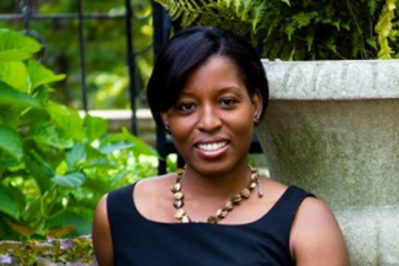What social and psychological forces shape the identities of aspiring doctors, lawyers, and other professionals? The question captivated Wharton researcher Njoke Thomas, who is studying medical students to better understand how they navigate toward becoming physicians.
 To become doctors, medical students embark upon an eight-year journey, at minimum. Most start even earlier, chasing academic and personal excellence in high school with an eye toward winning that coveted med school acceptance.
To become doctors, medical students embark upon an eight-year journey, at minimum. Most start even earlier, chasing academic and personal excellence in high school with an eye toward winning that coveted med school acceptance.
With my background in public health, I’ve always been interested in how professionals in the healthcare arena become who they are and find their career path. I decided to investigate how people deal with medical school—that first shakeup, the first transitional point in their journey—and how it shapes their understanding of the identity they seek to assume.
For my working paper “Coming into focus: The evolution of identity meaning in the early stages of professional socialization,” I studied the progress of medical students at a small private Midwestern university. I also worked with ethnographic and archival data, drawing on observation, interviews, student blogs, and previous research.
I focused on the later years of medical school, which I classify as the “encounter state” of medical socialization. These years shift the focus from learning academic principles to intensive clinical training. Students suddenly find themselves on the periphery of what’s happening, having to make their own sense of it as they’re exposed to the activities that doctors engage in day to day.
Connecting to one’s values allows students to take stock: “This is who I really am, this is what’s going to make me happy.”
My work is still in progress, but I’ve made some interesting discoveries. For example, I had planned to measure students’ humanistic and technical approaches to medicine as binary orientations, but I found it isn’t a binary. A significant number of my informants ranked highly in both categories.
Another finding involves personal values. Much of the professional identity research is about socialization: how the organization changes the individual. But I’m seeing how connecting to one’s values allows students to take stock: “This is who I really am, this is what’s going to make me happy.”
These values don’t always rhyme with the specialty they choose. The psychiatry micro-community is different from, say, the ob-gyn micro-community, and students need to consider the right fit. Moreover, I’ve become aware that some medical schools put pressure on students to avoid the less “prestigious” specialties.
How can we ensure that doctors go into the specialty that best suits them? I’m actually in the process of developing an intervention with a particular medical school. It involves helping health care professionals become more mindful of whether their training choices reflect their values. I believe this approach will benefit both aspiring doctors and their future patients.


